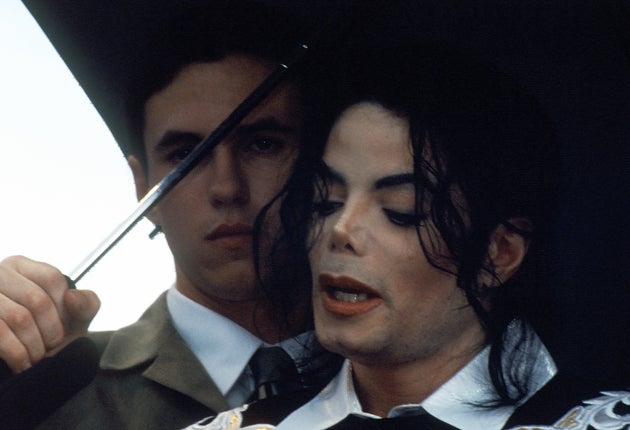Jacko film libel action leaves lots of costs and no winners
Ex-bodyguard and Channel 4 both claim victory in no-win-no-fee case, reports Matthew Bell

The first anniversary of Michael Jackson's death came and went on Friday with scarcely a shrug from the mainstream media.
There was a new conspiracy allegation from Jackson's sister, La Toya, and some talk that Wacko was, financially at least, rather better off dead. But the pop king's ghost would undoubtedly have loomed rather larger over the news cycle had the case brought by Jackson's former bodyguard, Matt Fiddes, against Channel 4 not been dropped on Monday, depriving the tabloids of what promised to be a colourful High Court drama.
The case centred on a Channel 4 documentary called The Jacksons Are Coming which chronicled the bizarre events of summer 2008 when it appeared that members of the Jackson family were house-hunting in North Devon. No sooner had the programme aired then Channel 4 found itself with a libel action brought by Fiddes. He had featured prominently in the film, shepherding Tito Jackson, Michael's brother, round Devon, and was unhappy with its representation of him. He accused producers of faking scenes to cast him as the villain.
By Monday, when Fiddes dropped his action, the case had dragged on for 19 months, leaving each party with a legal bill of more than £1.7m.
Both claimed a moral victory, with the broadcaster decrying Britain's libel laws, and the "no win no fee" conditional fee agreements (CFAs) which enable the public to bring costly actions against media groups. For Fiddes's part, he was happy that Channel 4 had accepted that he had not sold stories about the Jacksons to the press, which his lawyer says was central to his complaint.
There are no winners from this case: each party has been left with a hefty legal bill and has had to concede on certain points. Each party has left proceedings lamenting the state of Britain's libel laws: on the one hand, a private individual who claims his reputation was unfairly demolished by the media's representation of him, and on the other, a team of independent film-makers who say their time and money has been wasted and their freedom of expression threatened by a process that is stacked against them.
Outside the High Hourt, the head of Channel 4, Julian Bellamy, said he would always defend his programme makers "in the face of unjustified and scurrilous allegations". Yet the allegations of fakery must have struck a raw nerve: the production company behind the film was Studio Lambert, set up by Stephen Lambert in 2008 after he quit RDF Media the previous year over the fakery scandal surrounding A Year with the Queen, the film made for the BBC that cost the scalp of Peter Fincham, controller of BBC1.
With Monday's agreement there is no longer any suggestion that the film-makers were involved in fakery, and Lambert and Jane Preston, who narrated the film, have made no apologies. Those who saw the film recall it was rather less sensational than its billing. Far from containing scenes of Michael Jackson arriving by helicopter at Devon farmhouses to be greeted by fawning estate agents – no doubt what Channel 4 was hoping for when it commissioned Studio Lambert – the end result showed a rather forlorn Tito and his mother being driven round among indifferent locals.
Fiddes says he and Tito cooked up the idea to promote Tito's profile and a forthcoming single. This could explain why the Jacksons chose Devon to "settle", which is where Fiddes works as a martial arts coach. His connection with the Jacksons dates back to 1998, when he was introduced to Michael Jackson via Uri Geller, a client. He claims he soon became friends with Jackson, and became an unofficial bodyguard during his visits to the UK.
A week before the broadcast, Fiddes was told that the film showed him in an unfavourable light, and he reached for his lawyers. He told this newspaper that the film brought him hostility from neighbours, and that he has suffered from reactive depression as a result. "I've been through hell," he says, "I'm just relieved it's over." He says legal action was the only way to clear his name.
Channel 4 sees the case as an example of the injustice of CFAs, which place the burden of proof on the defendant. "This illustrates the chilling effect that exorbitant legal costs CFA-funded libel claims can have on broadcasters' freedom of expression," said Bellamy. "The claim was flawed from the outset."
Many questions will remain permanently unanswered with the closing of the case. The broadcaster has the support of high-end insurers Hiscox, which offers libel cover. On Fiddes's side, it is unclear how much of his legal bill he will have to pay given the equivocal outcome. But if he is obliged to pay the balance, it may encourage future claimants to think twice before taking action.
Subscribe to Independent Premium to bookmark this article
Want to bookmark your favourite articles and stories to read or reference later? Start your Independent Premium subscription today.

Join our commenting forum
Join thought-provoking conversations, follow other Independent readers and see their replies